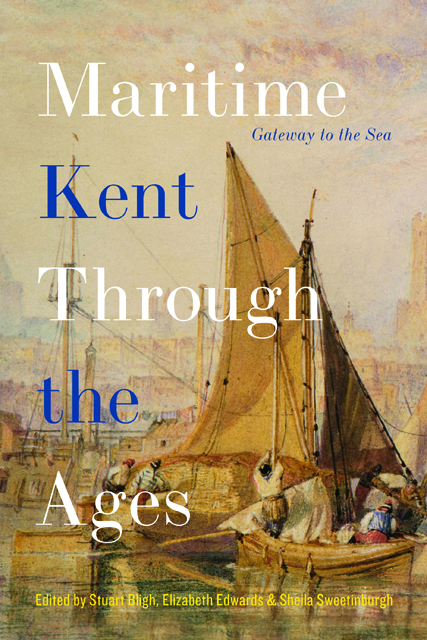13 - Empire, Race, and Diversifying Kent’s History, c.1500–1840
Published online by Cambridge University Press: 20 December 2023
Summary
On 4 September 1707 the London newspaper, Post Boy, carried the following advertisement:
A Negro Boy aged about 16 Year shor[t] N[ec]k, flat Nose and thick Lips, has several Scars about his Throat, his Head bare in one or two places, occasioned, as is supposed, by some Fall, had on a red Pair of Breeches and an Old Cinnamon Colour Bateen Coat, speaks tolerable Good English, went by the Name of Prince. The said Black run away from his Master Mr. Tobias Bowles of Deal about the middle of July last, has since been at Dover and Places adjacent, and supposed he may come towards London; whoever brings an Account of him so that he may be taken, shall receive as a Reward one Guinea and Charges, giving notice to Mr. Lloyd, at his Coffee-house in Lombardstreet, London, Mr. Joackime at Sittingborn, or at his Master at Deal in Kent.
Similar notices, common in eighteenth-century British newspapers, raise interesting questions about individual lives, communities, and understandings of race and place. Who was ‘Prince’? Did he have another name? How did he get to Kent, and what was his status in Deal? Why did Prince run away? What can we infer from the scattered references to his scarred body, his belongings, and his ‘Master’? Broader questions arise about contemporary labour relationships, about the network of locations mentioned, and other Black people then living in Kent. Prince cannot have packed much and he probably possessed few goods, given his status, and the success of his escape would depend on unfettered speed and motion. But the report of his flight leaves plenty to unpack about how the histories of diverse peoples, maritime spaces, and imperial exchanges entangled communities in Kent.
There is no firm evidence in the advertisement that Prince was enslaved. A handful of Black people in seventeenth- and eighteenth-century Britain were referred to as ‘slaves’, having been brought into the country by colonial planters from the Americas, who often continued to treat them as such. English law was ambiguous on the status and rights of Black people in England.
- Type
- Chapter
- Information
- Maritime Kent through the AgesGateway to the Sea, pp. 299 - 324Publisher: Boydell & BrewerPrint publication year: 2021

